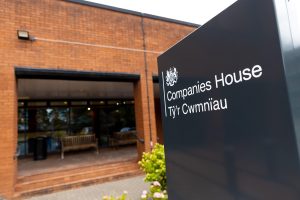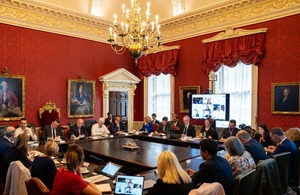Corporation tax rise remains, but Chancellor offers a £27bn ‘cut’

Resisting strong pressure from his back benchers to roll-back the planned increase in corporation tax from 19p to 25p, the Chancellor today offered a break to business with one measure he said represents a corporation tax cut of £9bn a year over the next three years.
As a replacement for the previous Super Deduction scheme introduced by former Chancellor Rishi Sunnak, which expires at the end of this month, the current Chancellor announced the scheme, alongside help for SMEs.
He said: “Even after the corporation tax rise this April, we will have the lowest headline rate in the G7.
“Only 10% of companies will pay the full 25% rate, but even at 19% our corporation tax did not incentivise investment as effectively as countries with higher headline rates. The result is less capital investment and lower productivity than countries like France and Germany.
“We’ve already taken measures to address this. For larger companies we had Super Deduction which ends this month, for smaller businesses we have increased the annual investment allowance to £1m meaning 99% of all businesses can deduct the full value of all investment from that year’s taxable profits.”
He added: “We will introduce a new policy of full capital expensing for the next three years, with an intention to make it permanent as soon as we can responsibly do so. That means that every single pound a company invests in IT equipment, plant or machinery, can be deducted in full and immediately from taxable profits.
“It is a corporation tax cut, worth an average of £9bn a year for every year it is in place and its impact on the economy will be huge.”
He said the Office of Budget Responsibility estimates that it will increase business investment by three per cent every year it is in place.
Mr Hunt also announced plans to help the life sciences and creative industries sectors with an enhanced credit scheme which means that if a qualifying SME spends 40% or more of their total expenditure on R&D they will be able to claim a credit worth £27 for every £100 they spend.
He said: “That means an eligible cancer drug company spending £2m on R&D will receive over £500,000 to help them develop breakthrough treatments. It’s a £1.8bn package of support helping 20,000 cutting edge companies.”
And he highlighted the value of the film and TV industry, offering support through an expenditure credit with a rate of 34% for film, high end television and video games and 39% for the animation and children’s TV sectors.
He pledged to maintain the qualifying threshold for high end television at £1m and extend for another two years the current 45 and 50% reliefs for theatres, orchestras and museums.
He acknowledged that energy costs are an increasing headache for businesses, excacerbated by Russia’s invasion of Ukraine that sent prices spiralling throughout Europe.
The energy bill relief and energy discount relief schemes were introduced to support businesses and Mr Hunt said he will extend the climate change agreement scheme for two years to allow elibigle businesses £600m of tax relief on energy efficiency measures.
But he said the aim is to insulate the UK from future exposure to unexpected volatility in the energy market, and he focused on carbon capture usage and storage (CCUS), which is a hotbed of activity throughout the North.
He announced he will allocate up to £20bn of support for the early development of CCUS, starting with projects from the east coast to Merseyside and North Wales, paving the way for CCUS everywhere across the UK on the run-up to 2050 which he said will support up to 50,000 jobs, attract private sector investment and help to capture up to 20 to 30 million tonnes of CO2 per year by 2030.
The Chancellor also re-classified nuclear power as environmentally sustainable which will give it access to the same investment incentives as renewable energy, alongside more public investment.
And he announced the launch of a competition for small modular reactors which will be completed by the end of 2023. He said if it is demonstrated as viable, the Government will co-fund the exciting new technology, which is at the heart of the North West.
Last June, engineering giant Rolls-Royce, which was formed in Manchester in 1904, announced it had chosen to return to the city and base its small modular reactors division’s head office in the city.









